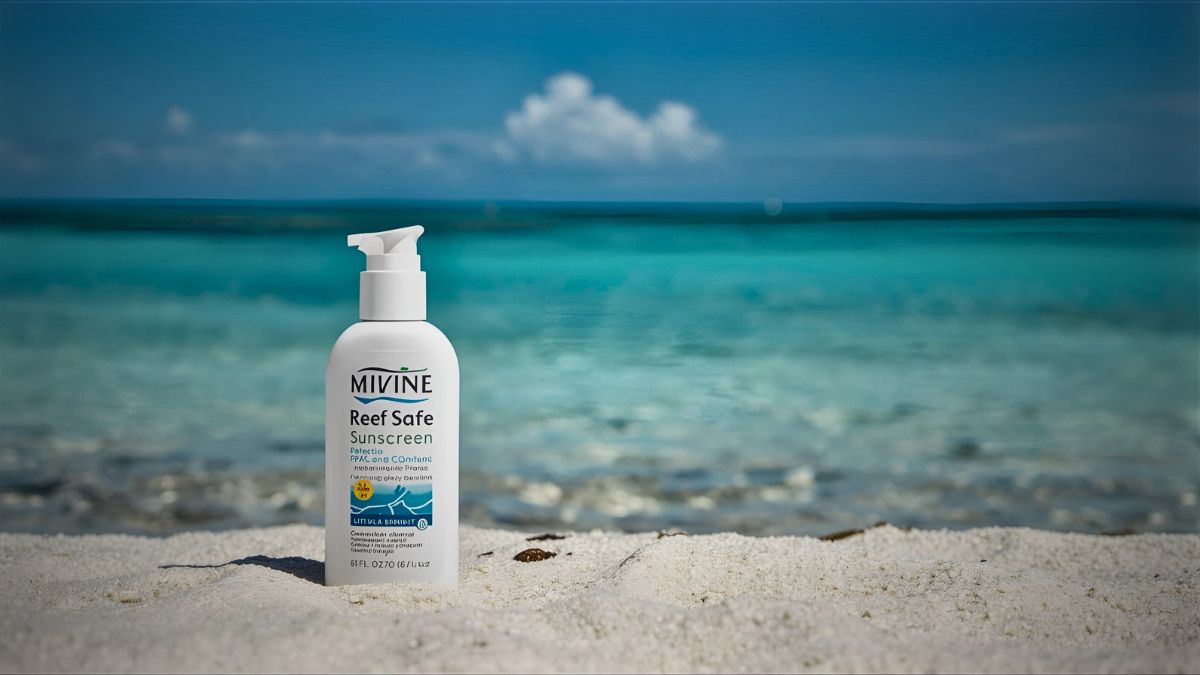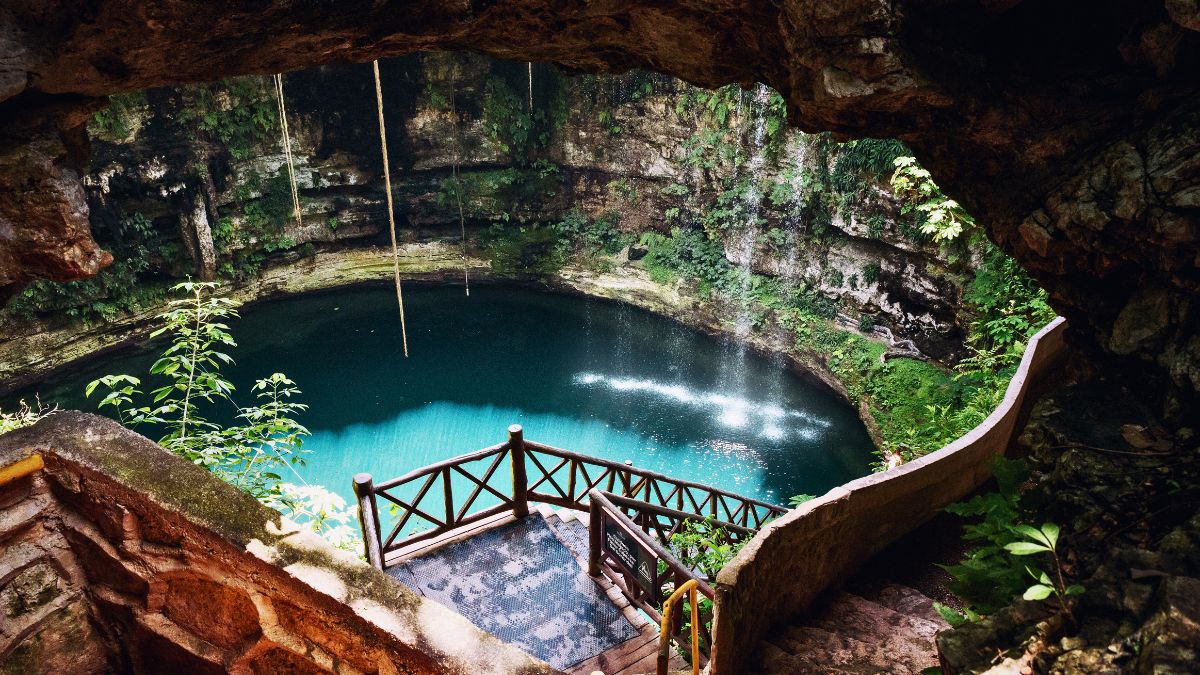Costa Rica, a small yet incredibly diverse country in Central America, has earned its reputation as the world’s premier destination for ecotourism. When I first arrived here years ago, I was struck by how deeply conservation is woven into the national identity. This isn’t just marketing. It’s a way of life that shapes everything from government policy to how locals interact with their environment.
If you’re planning a trip focused on nature, wildlife, and responsible travel, Costa Rica offers an experience unlike anywhere else on the planet. Let me walk you through why this tiny nation punches so far above its weight when it comes to ecotourism, and how you can make the most of your visit while supporting conservation efforts.
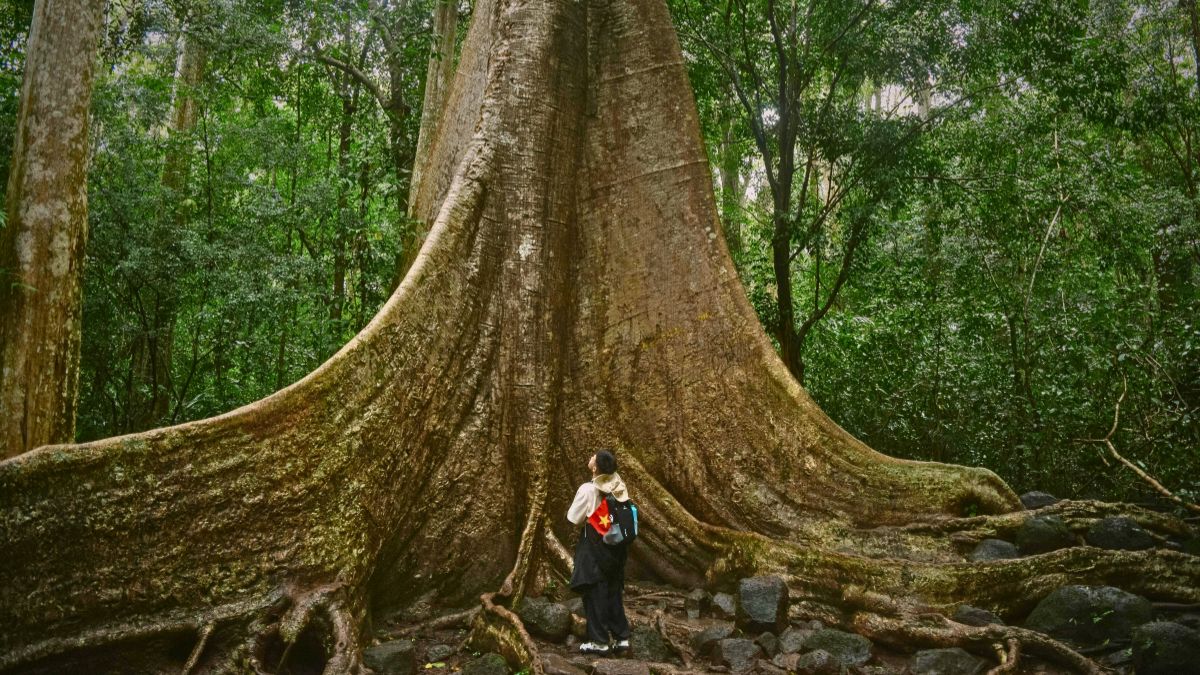
What Is Ecotourism in Costa Rica?
Ecotourism is more than just visiting beautiful places. It’s a philosophy of travel that prioritizes three key principles: minimizing environmental impact, supporting local communities, and educating visitors about conservation.
In Costa Rica, ecotourism means experiencing pristine rainforests, volcanic landscapes, and coastal ecosystems in ways that actively contribute to their protection. When you book a guided hike through Corcovado National Park or join a whale watching tour in Uvita, you’re not just a spectator. You’re participating in a system that funds conservation programs, employs local guides, and incentivizes the preservation of natural habitats.
The country has built its tourism model around this concept, making it possible to explore some of the most biodiverse places on Earth while knowing your presence helps rather than harms.
Did you know? Costa Rica abolished its military in 1949 and redirected those funds toward education, healthcare, and environmental conservation. That decision shaped the country’s future as a global conservation leader.
Why Costa Rica Is a Global Ecotourism Leader
Unmatched Biodiversity
Costa Rica contains roughly 5% of all species on Earth, despite covering only 0.03% of the planet’s surface. That’s not a typo. Walk through a rainforest here, and within an hour you can spot howler monkeys, scarlet macaws, poison dart frogs, and three-toed sloths, all in their natural habitat.
This concentration of life exists because Costa Rica sits at a unique geographical crossroads. The country bridges North and South America, creating a meeting point for species from both continents. Add in varied elevations ranging from sea level to over 12,000 feet, plus both Caribbean and Pacific coastlines, and you have a recipe for extraordinary biodiversity.
The ecosystems here include tropical rainforests, cloud forests, dry forests, mangrove swamps, coral reefs, and volcanic highlands. Each supports its own community of plants and animals, many found nowhere else on the planet. Corcovado National Park alone shelters over 500 tree species per hectare. That’s more than exist in all of North America combined.

Strong Conservation Commitment
Costa Rica’s conservation story is genuinely inspiring. In the 1980s, the country faced rapid deforestation as forests were cleared for agriculture. Instead of accepting this as inevitable, Costa Rica made a bold choice: it would become a conservation pioneer.
Today, more than 25% of the country’s land area is protected through national parks, wildlife refuges, and biological reserves. Even more remarkably, forest coverage has actually increased from around 20% in the 1980s to over 50% today. This reversal of deforestation is almost unprecedented globally.
The government has committed to becoming carbon-neutral, and Costa Rica already generates over 98% of its electricity from renewable sources – primarily hydroelectric, wind, and geothermal power. These aren’t empty promises. They’re backed by programs like Payments for Ecosystem Services, which compensates landowners for protecting forests on their property.
I’ve seen firsthand how these policies translate into real protection. Visit Tortuguero National Park, and you’ll witness the result of decades of turtle conservation efforts. Green sea turtle populations that were once critically endangered have rebounded dramatically, thanks to strict protection of nesting beaches and local communities transitioning from egg harvesting to ecotourism.
Fun fact: Costa Rica has more biodiversity per square kilometer than any other country. You can travel from Caribbean rainforest to Pacific beach in just a few hours, experiencing completely different ecosystems along the way.
Top Ecotourism Activities in Costa Rica
Whale Watching in Uvita
If you only do one thing during your visit, make it whale watching in Uvita. Marino Ballena National Park, named after the Spanish word for whale, hosts one of the longest humpback whale seasons in the world.
These magnificent creatures migrate here from both the Northern and Southern hemispheres, creating two distinct seasons: July through October, and December through March. During peak times, you have an excellent chance of seeing mothers with calves, males competing for mates, and the unforgettable sight of a 40-ton whale breaching the surface.
What makes whale watching here truly special is how responsibly it’s conducted. Tour operators follow strict guidelines: boats must maintain distance, limit time near whales, and never chase or encircle them. As someone who has led these tours for years, I can tell you that respectful observation often results in more meaningful encounters. Whales are curious animals. When they don’t feel threatened, they sometimes approach boats on their own terms.
Beyond whales, these tours often include sightings of dolphins, sea turtles, manta rays, and abundant seabirds. The marine ecosystem around Marino Ballena is thriving, partly because tourism revenue has made protecting it economically valuable to local communities.
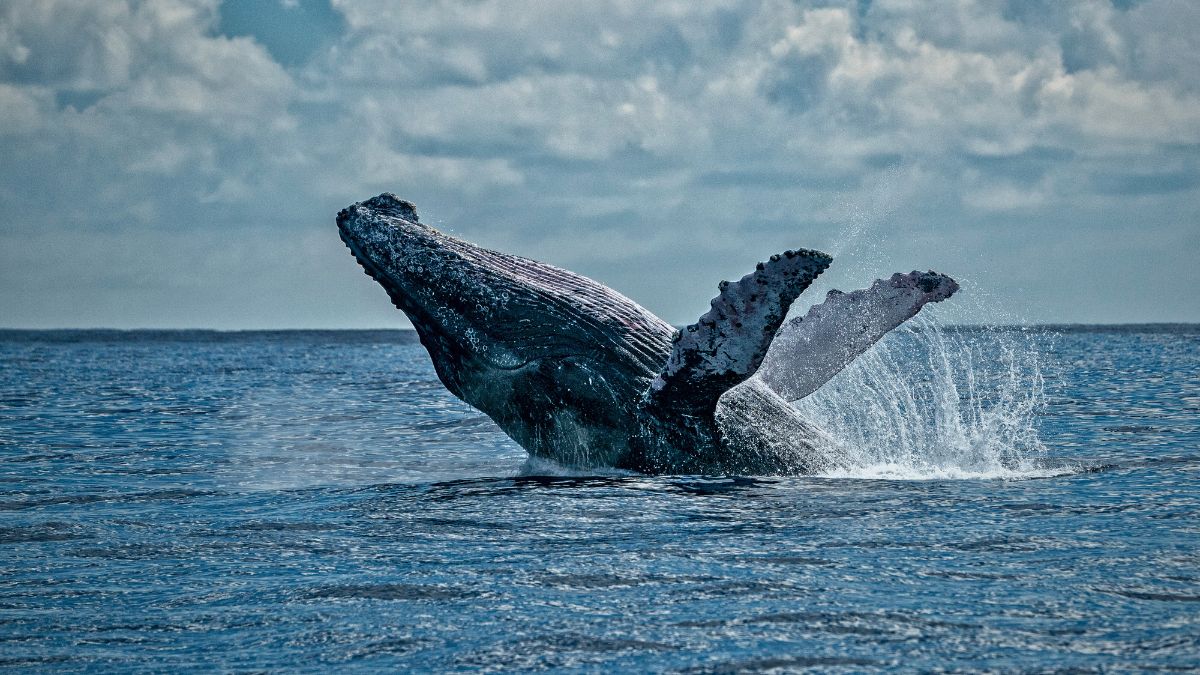
Hiking and Nature Tours
Costa Rica’s network of trails offers access to ecosystems most people only see in nature documentaries. Monteverde Cloud Forest Reserve, perpetually shrouded in mist, feels like stepping into another world. The hanging bridges there let you walk through the canopy layer, where most of the forest’s biodiversity actually lives.
For a more intense experience, Corcovado National Park on the Osa Peninsula delivers. National Geographic described it as “the most biologically intense place on Earth in terms of biodiversity.” Hiking here requires a certified guide, which ensures both your safety and minimal environmental impact. The trails wind through primary rainforest where you can encounter tapirs, jaguars, all four Costa Rican monkey species, and countless bird species.
Arenal Volcano National Park offers a different experience. Trails here range from easy walks to challenging climbs, all with the perfectly conical volcano as a backdrop. The surrounding area includes hot springs heated by geothermal activity, creating a unique combination of adventure and relaxation.
The guides make these experiences truly special. Local naturalist guides don’t just show you animals. They explain the intricate relationships that make these ecosystems function, from leaf-cutter ant colonies to the symbiotic relationships between plants and animals.
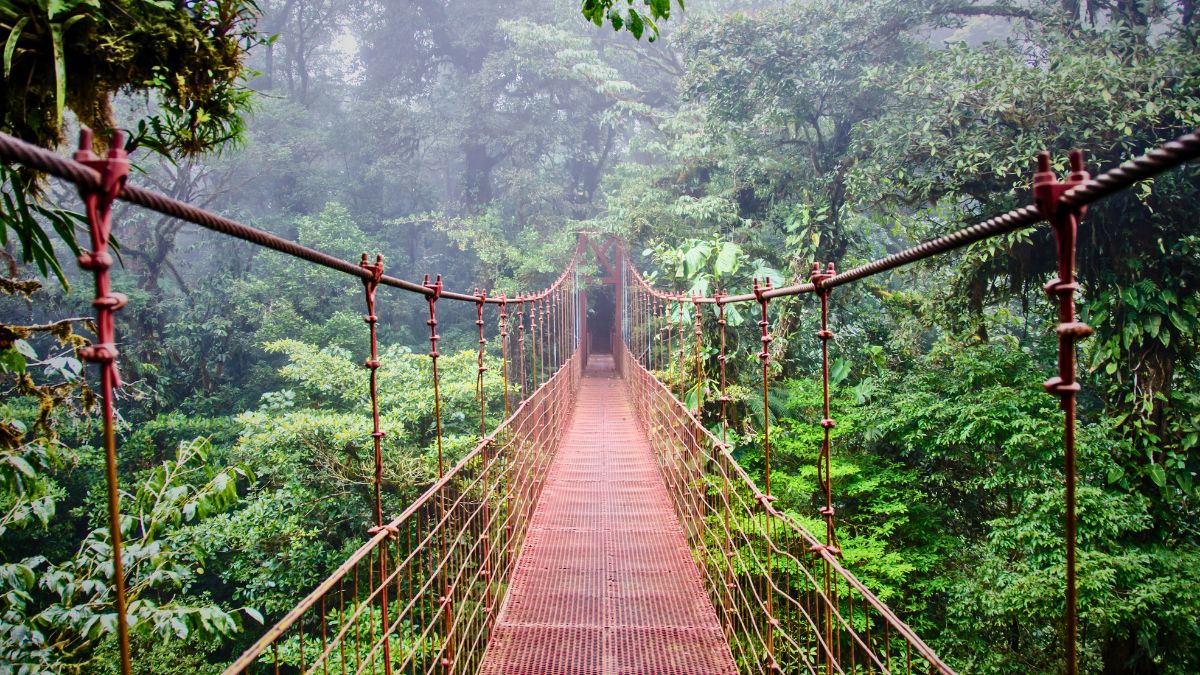
Wildlife Watching and Photography
Costa Rica is a paradise for wildlife enthusiasts. Unlike safari destinations where you need vehicles to spot distant animals, here you can observe wildlife on foot, often at close range.
Caño Negro Wildlife Refuge, a seasonal wetland near the Nicaraguan border, becomes a haven for waterbirds during the dry season. I’ve seen flocks of roseate spoonbills, jabiru storks, and hundreds of caiman basking on riverbanks there. Boat tours navigate the channels quietly, allowing intimate observation without disturbing the animals.
Tortuguero, accessible only by boat or plane, offers a completely different experience. The canals that wind through the rainforest teem with life. Three-toed sloths hang motionless in trees, river otters play in the water, and Jesus Christ lizards literally run across the water’s surface.
The real magic happens at night during turtle nesting season. Green sea turtles haul themselves onto the beach to lay eggs, a behavior they’ve repeated for millions of years. Watching this ancient ritual, guided by researchers who monitor and protect each nest, is profoundly moving. It’s also a perfect example of how ecotourism works: your visit funds the rangers and research that keep these turtles safe.
Did you know? Sloths are so well adapted to their slow lifestyle that algae grows on their fur, providing camouflage and even supplemental nutrients. Their fur also hosts entire ecosystems of insects found nowhere else.
How Ecotourism in Costa Rica Benefits Local Communities
The economic impact of ecotourism extends far beyond park entrance fees. Throughout Costa Rica, I’ve watched communities transform as sustainable tourism provided alternatives to activities that degraded the environment.
In coastal areas, former turtle egg poachers now work as guides and conservation monitors, earning significantly more than they did from harvesting eggs. In the Talamanca region, Indigenous Bribri communities have developed cultural tourism programs that share their traditions while generating income that keeps families together instead of forcing members to migrate to cities for work.
Eco-lodges, often family-owned, employ local staff and source food from nearby farms. This creates a ripple effect throughout rural economies. The gardener at an eco-lodge supplies produce from his farm. The naturalist guide is often a former farmer who gained expertise from a lifetime of observing the forest.
These economic benefits create powerful incentives for conservation. When a living forest generates more income than a cleared pasture, landowners become fierce protectors of nature. I’ve met cattle ranchers who’ve transitioned to running wildlife tours, and they’re often the most passionate conservationists you’ll meet.
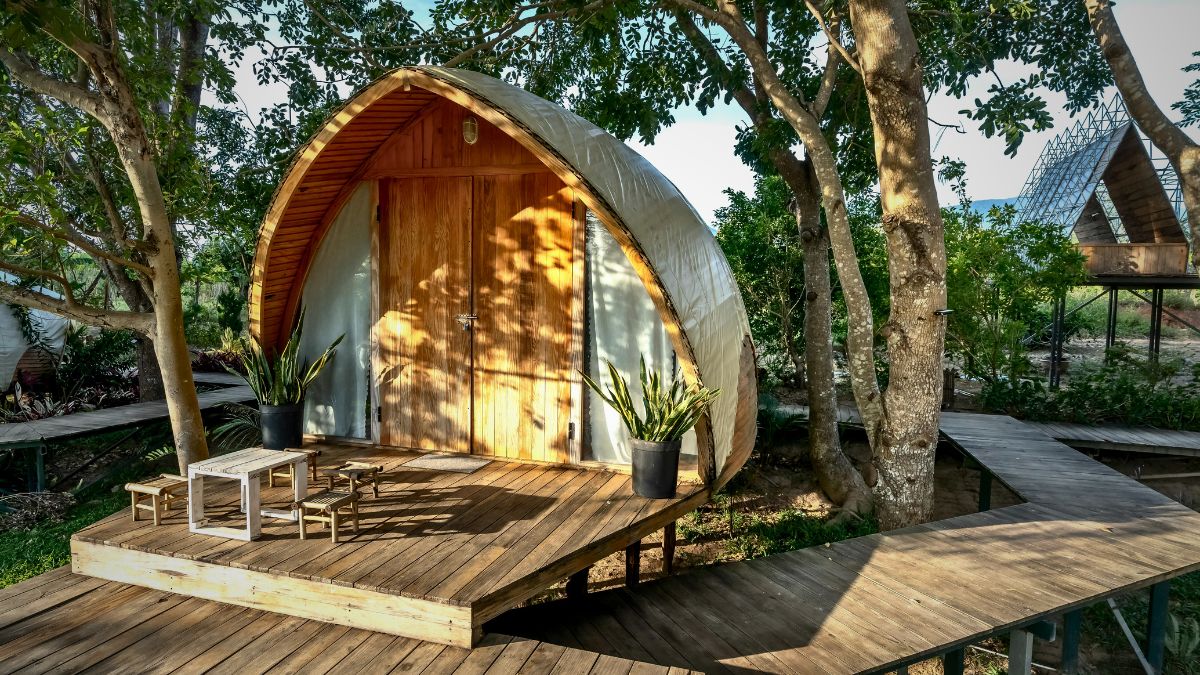
Responsible Travel: Challenges and How to Help
Managing Over-Tourism
Costa Rica’s success has created a new challenge: popularity. Manuel Antonio National Park, one of the most visited in the country, now limits daily visitors to prevent overcrowding and environmental damage. During peak season, the park can reach capacity by mid-morning.
This is actually a good thing. These limits protect the very ecosystems people come to see. But it means travelers need to plan ahead. Booking tours in advance, visiting during shoulder season (May-June or September-November), and exploring less-known destinations all help distribute impact more evenly.
Some of the most rewarding experiences happen in places few tourists visit. The Osa Peninsula beyond Corcovado, the northern lowlands around Caño Negro, and the Caribbean coast near Cahuita offer wildlife viewing with a fraction of the crowds.
Tips for Eco-Conscious Travelers
Your choices matter more than you think. Here’s how to maximize your positive impact:
Choose certified accommodations. Look for hotels and lodges with the Costa Rican Sustainability Tourism Certificate (CST). This rigorous certification evaluates everything from waste management to community engagement.
Minimize plastic use. Bring a reusable water bottle. Tap water is safe to drink throughout Costa Rica. Refuse plastic bags and straws. Many beaches here are pristine because communities work hard to keep them that way.
Respect wildlife viewing guidelines. Never feed animals, maintain appropriate distances, and follow your guide’s instructions. That cute sloth doesn’t want to be touched, no matter how much it might seem otherwise.
Support local businesses. Eat at local restaurants, buy crafts directly from artisans, and choose tour operators based in Costa Rica rather than international chains that funnel profits elsewhere.
Stay on marked trails. It might seem harmless to step off the path for a photo, but erosion and habitat disruption add up when thousands of visitors do the same thing.
Learn some Spanish. Even basic phrases show respect for local culture and lead to richer interactions with the people who call this place home.
Best Destinations for Ecotourism in Costa Rica
While I could write an entire book about Costa Rica’s ecotourism destinations, a few stand out as absolute must-visits:
Corcovado National Park remains the crown jewel. Remote and rugged, it requires commitment to reach, but rewards you with unparalleled wildlife density and pristine ecosystems. All four monkey species live here, along with jaguars, tapirs, and over 400 bird species.
Monteverde Cloud Forest Reserve offers a completely different experience. The misty high-elevation forest hosts species found nowhere else, including the resplendent quetzal, often considered the most beautiful bird in the Americas. The suspended bridges and canopy tours here pioneered adventure ecotourism.
Tortuguero National Park on the Caribbean coast is accessible only by boat, which has helped preserve its character. The network of canals through the rainforest and the critically important turtle nesting beaches make this a highlight of any Costa Rica itinerary.
Osa Peninsula extends beyond Corcovado to include Drake Bay, Isla del Caño, and numerous private reserves. This region feels truly wild, with limited development and spectacular biodiversity both on land and underwater.
Arenal and La Fortuna combine active volcano viewing, hot springs, and diverse hiking. The area has excellent tourism infrastructure while maintaining strong conservation standards.
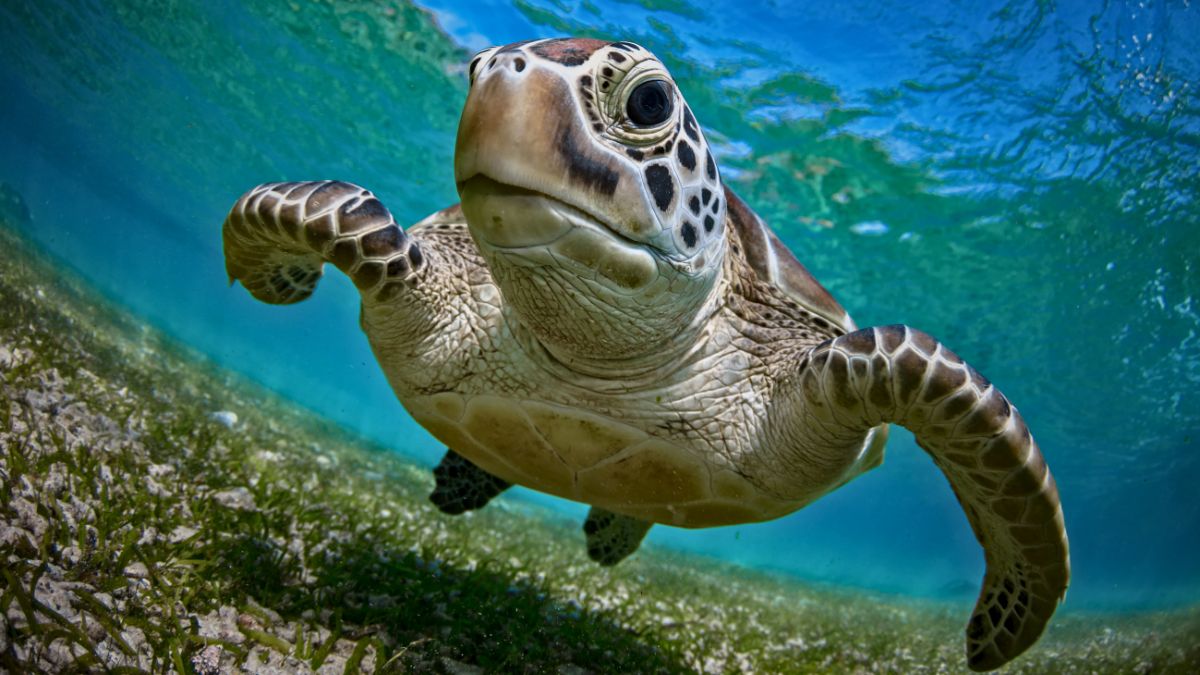
Why Choose Costa Rica for Your Ecotourism Adventure?
After years of exploring this country and sharing it with visitors, I’m still amazed by how much Costa Rica offers. The biodiversity speaks for itself, but what really sets Costa Rica apart is the culture of conservation.
This is a safe, welcoming country with excellent infrastructure for travelers. You can drink the water, drive the roads, and communicate in English when needed, while still having authentic nature experiences that rival anywhere on Earth.
The government’s commitment to protection isn’t just policy. It’s national identity. Schoolchildren learn about conservation from an early age. The phrase “Pura Vida,” which you’ll hear constantly, reflects a philosophy of living in harmony with nature.
As a tour operator based here, we’ve built our entire approach around these principles. Our guides are naturalists who grew up in these ecosystems. Our tours follow best practices for wildlife observation. We work directly with local communities and conservation organizations to ensure tourism benefits the people and places you visit.
When you choose ecotourism in Costa Rica, you’re not just taking a vacation. You’re participating in a grand experiment in sustainable development, proving that conservation and economic prosperity can coexist. Every tour you book, every eco-lodge you stay in, and every local guide you hire sends a message: protecting nature is valuable, and the world is watching.
The rainforests, beaches, and wildlife you experience here exist because generations of Costa Ricans chose conservation over short-term profit. Your visit helps ensure those choices continue to make economic sense, protecting these wonders for generations to come.
Ready to explore Costa Rica responsibly? We’d love to help you design an ecotourism adventure that matches your interests while supporting the communities and ecosystems that make this country special. From whale watching in Uvita to diving in pristine marine reserves, our locally-based team brings decades of experience and a genuine commitment to sustainable travel.
Frequently Asked Questions
When is the best time to visit Costa Rica for ecotourism?
Costa Rica is a year-round destination, but timing depends on your priorities. The dry season (December-April) offers easier hiking and clearer skies, but the green season (May-November) brings lush landscapes, fewer crowds, and lower prices. Whale watching peaks July-October and December-March.
Do I need a guide for ecotourism activities?
Some national parks like Corcovado require guides, and I strongly recommend them everywhere. Experienced naturalist guides dramatically improve your wildlife sightings and teach you about the ecosystems you’re exploring. They also ensure you follow best practices for minimal environmental impact.
How much does ecotourism in Costa Rica cost?
Costs vary widely. Budget travelers can visit national parks for low entrance fees and stay in basic eco-lodges for reasonable rates. Mid-range and luxury ecotourism options offer more comfort and guided experiences at higher prices. Across all price points, you can find genuinely sustainable options.
Is Costa Rica safe for ecotourism?
Yes. Costa Rica has a stable democracy, no military, and relatively low crime rates, especially in rural areas where ecotourism happens. Standard travel precautions apply, but millions of visitors explore safely every year.
What should I pack for an ecotourism trip?
Bring lightweight, quick-dry clothing in neutral colors, sturdy hiking shoes, a rain jacket, reef-safe sunscreen, insect repellent, binoculars, and a reusable water bottle. Leave jewelry and valuables at home. A headlamp is essential if you plan any night tours.
Can families with children enjoy ecotourism in Costa Rica?
Absolutely. Many tours and lodges cater specifically to families. Children often get more excited about wildlife than adults, and introducing them to conservation early creates lifelong environmental awareness. Just choose age-appropriate activities and accommodations.
How can I verify that a tour operator is truly eco-friendly?
Look for certifications like the CST (Sustainable Tourism Certificate). Ask about their conservation partnerships, local employment practices, and waste management. Genuinely sustainable operators are proud to discuss these topics in detail. Read reviews carefully, looking for mentions of environmental practices and community engagement.


